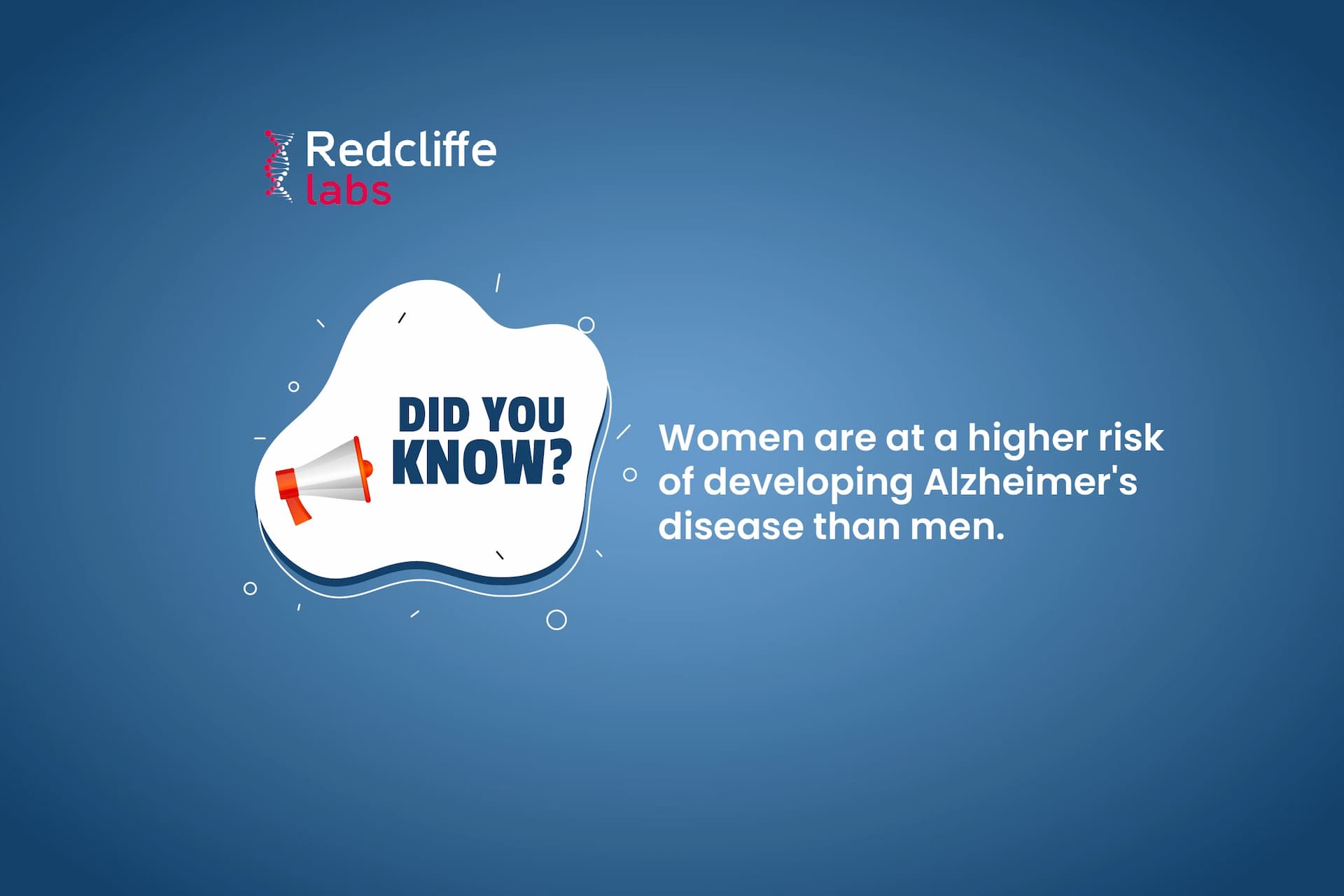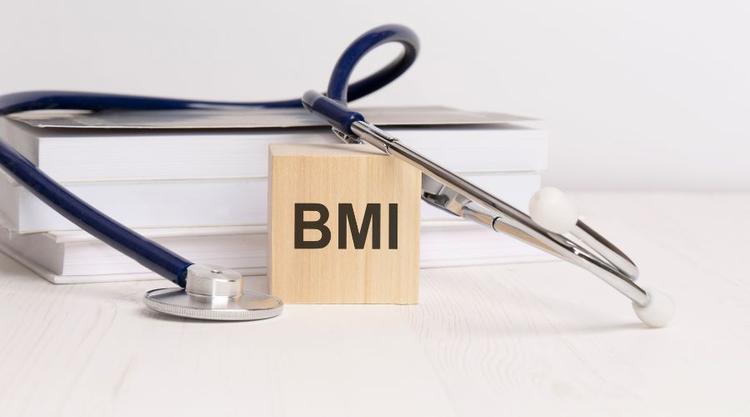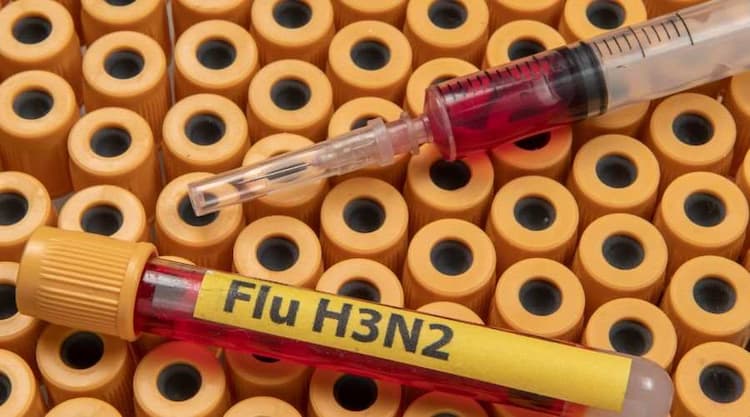World Alzheimer’s Day - Everything You Need To Know About Alzheimer's Disease

Medically Reviewed By
Dr Divya Rohra
Written By Komal Daryani
on Sep 21, 2022
Last Edit Made By Komal Daryani
on Mar 15, 2024

Know Alzheimer's, Know Dementia
Mental health is as important as physical health. Mental or brain disorders like Alzheimer's disease are not as bad as being unable to talk about them. People feel embarrassed confronting it in public, which is not good. For people with brain disorders or mental issues, it is crucial to learn to acknowledge the need for help and seek help without hesitation.
Speaking of brain disorders, the list is infinite and can be because of anything, like illness, genetics, or injury. Each condition comes with different drawbacks and requires diagnoses and treatment accordingly. One of the common brain disorders whose numbers are increasing with the days is Alzheimer's disease.

Your brain is a complex yet crucial organ that controls thoughts, emotions, motor skills, and every single process that regulates our body. Therefore, brain health should be the top priority to keep risks of brain disorders at bay.
Alzheimer's disease is a progressive neurologic disorder that needs to be addressed and handled immediately. It causes the brain to shrink and brain cells to die.
Most people confuse Alzheimer's disease with Dementia, but both are different terms.
Dementia is an umbrella term and not a specific disease, but Alzheimer's is a disease. On one side, Dementia is a group of symptoms or conditions characterized due to one or two brain disorders, and Alzheimer's, on the contrary, is the most common form of dementia.
Health awareness is significant to avoid difficulties and get the correct treatment. Therefore, you should Know Alzheimer's, Know Dementia, to sail through complications.
Alzheimer's disease is an irreversible brain disorder that needs to be addressed in time.
Now the question is how? Well, it’s not a rocket sign, and understanding its early symptoms can help to identify the disorder and allow ones to take preventive measures. Some of the common signs that one should never ignore are:
- Memory loss is the key symptom that indicates Alzheimer’s disease. It makes it hard for one to recall events, and this memory impairment worsens with time.
- An individual with the condition faces extreme challenges in planning and solving problems, which leads to poor judgment and decisions.
- As the disease progresses, it becomes hard for one to complete the most basic regular tasks such as dressing and bathing.
- It also affects moods and behaviors and disturbs sleeping habits.
- Moreover, the moderate stage makes it difficult for one to perform multiple tasks and creates problems for them recognizing family and friends.
- And as the disease progresses or reaches the severe stage, the situation worsens.
- One loses the ability to communicate, suddenly loses weight, has difficulty swallowing, and loses bowel and bladder control.
Its symptoms vary from person to person, depending on age, gender, genetics, illness, or injury severity, among other factors. Therefore, whether the sign is simple or severe, get it diagnosed early to ease the symptoms and control your health before things go out of hand.
The condition is undeniably complex, but you should understand that you are not alone in it. All you need is timely attention, a little extra care, and support to sail over the challenges.
Knowing whether you are at risk or not is also crucial, as it helps you plan your journey accordingly. Here are a few factors that put someone at a higher risk of developing this disorder than others.
- Aging is the most common and prominent risk factor for developing the illness, as most people diagnosed with the condition are 65 or older.
- Anyone can develop this, but an individual with a family history or family member with the condition is more likely to develop the illness.
- People with cardiovascular conditions are more likely to develop it.
- Moreover, traumatic brain injury or injury of the skull increases one’s risk of developing the disease more than others.
Stages Of Alzheimer's:
Alzheimer's progresses slowly and goes from mild to moderate to severe. Each Alzheimer's stage affects people in different ways differently.
Overview Of Disease Progression:
- Mild or early stage causes very mild symptoms that cause general forgetfulness.
- When it reaches the moderate or middle stage, it requires a little extra care, as it lasts for years. Patients start forgetting events or personal histories and experience mood swings at this stage.
- As the disease progresses and reaches the severe or late stage, people are likely to lose awareness, experience changes in physical abilities, face difficulty communicating, and require extreme attention round-the-clock.
All in all, Alzheimer's disease is dangerous, but if diagnosed early, it enables one to live a meaningful and productive life for many years. An early diagnosis comes with multiple benefits, like:
- Lessen anxieties and provides you more emotional and social support.
- You have more time to plan for the future regarding medical support and finance and increase potential safety ahead of time.
- Make you eligible for more clinical trials and help you manage the symptoms effectively.
- Keep you well-informed of what to expect throughout the phase and help you use treatments more effectively.
- Help you live to the fullest and plan life and lifestyle choices accordingly.
Currently, there is no cure for Alzheimer’s disease, but there are medicines, treatments, or therapies available that can ease the symptoms and slow down the disease's progression. If you or your loved ones have Alzheimer’s, don’t delay your diagnosis and take preventive care in time.
It is significant to understand that mental illness is not meant to be fought alone, so talk about it and take preventive care as seriously as you take care of any other physical health problem.Every year, we celebrate World Alzheimer's Day on the 21st of September to help more and more people know about Alzheimer's and Dementia. There is no foolproof cure for the disease yet, and it can be managed with the attention, love, and care of those close to you. Only you can make their living with the disease easier, so don't hesitate to offer support. Take this day as a reminder and spread awareness and positivity around.



